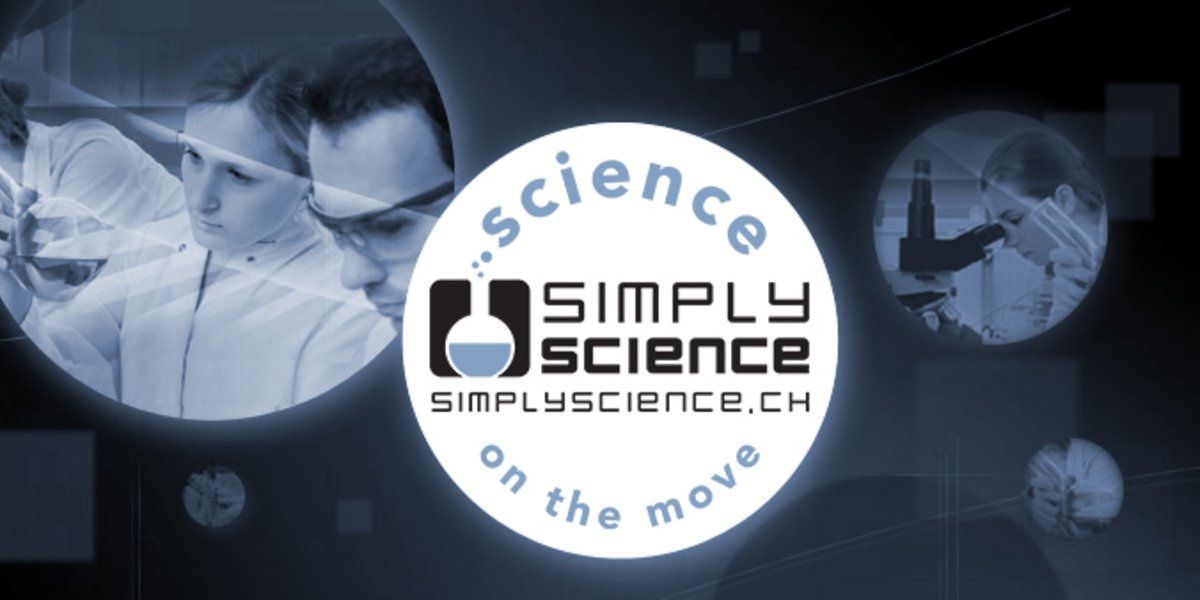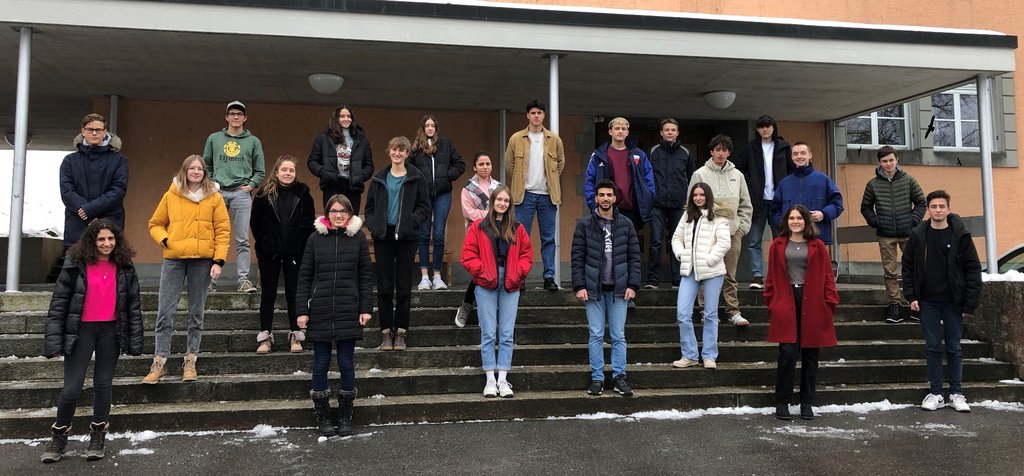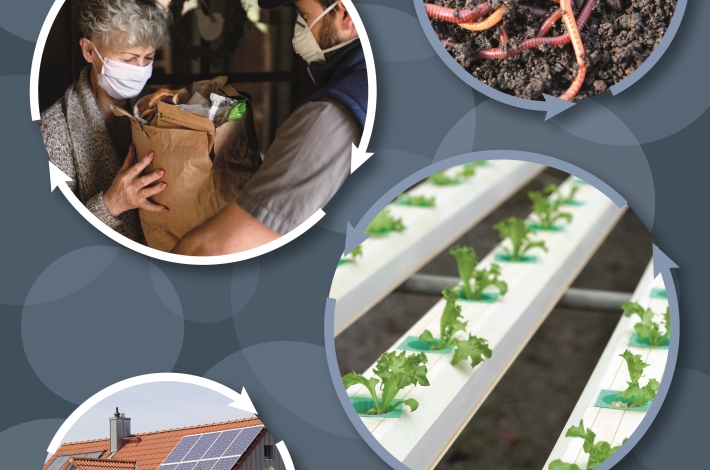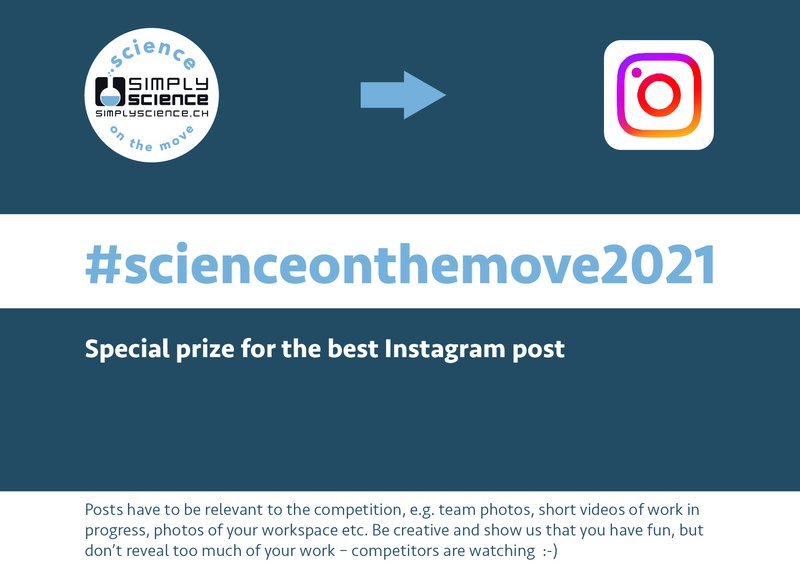All ten classes that participated in the final event impressed the audience with excellent performances. Taking into account also the ranking achieved in previous tasks, the final ranking was as follows:
And the winner is...
First place
- Class SF5 BC from Kantonsschule Trogen
Second place
-
Class Freifach Experimentelle Biologie from Alte Kantonsschule Aarau
Third place
- Class 3Q from Gymnasium Bäumlihof
"Best Video Clip" Award
In the course of the competition the classes were asked to provide a video clip that showcases their smart system. This year the award for the best video clip as voted by the students went to two classes:
-
Class Freifach Experimentelle Biologie from Alte Kantonsschule Aarau
-
Class 3Q from Gymnasium Bäumlihof
"Best Performance" Award
Each student had the chance to vote for the class he or she thought gave the best on stage performance (except for their own class). The award for the best performance on stage went to two classes (another tie!):
-
Class 2d from Gymnasium Kirschgarten
-
Class SF5 BC from Kantonsschule Trogen
"Best Insta Post" Award
The award for the Best Instagram Post went to two classes this year (a tie, again!):
- Class G11/G10 SF BC from Freies Gymnasium Bern
- Class 2022a from Gymnasium Friedberg
Press Release
Top 10 Classes
Task
Participating Classes
Project Description
Please find here the Project Description of the whole competition.
Timeline
Phase 1 - Challenge
Phase 2 - Preparation Stage Performance & Final Event
What is Science on the Move?
Launched in 2011, Science on the Move is a biannual, nationwide science competition for upper secondary school classes in Switzerland. The programme promotes scientific curiosity, enthusiasm and teamwork. The competition is open to schools in all regions of Switzerland. Nearly 3,200 students have participated in the tournament since its launch.
The first phase of the competition is dedicated to research and experimental work and documentation of the results. Only the ten best classes proceed then to the second phase where they prepare a creative stage performance presenting their results and experiences.
The classes will prepare their contributions in their classroom, at school or wherever they see fit.
This year's Final Event will take place at Roche in Basel/Kaiseraugst on 11 June 2021. The winning class is then selected by a jury of experts from science, education and industry.
What is new in this year's edition?
This year's competition takes a different path. Instead of performing experiments on a specified subject, student teams are asked to design an innovative project that improves our society. It may apply for example to sustainability, social life, management of resources ... The project may lead to a scientific result, a technical invention or an innovation in terms of interactions in society. It may encompass a product, a procedure or a whole system and can originate from the fields of chemistry, biology, electronics, informatics ... or a combination thereof. There may also be an interdisciplinary collaboration with a second teacher of subjects like economy or history.
The project can be implemented if it is feasible on a classroom scale. But a "visionary" project is also possible. The class will present its concept in detail and think about the feasibility.
Detailed information will be given at registration.
What is a system and what makes it “smart”?
Smart systems provide clever solutions to problems from various disciplines. We know that such dynamic systems are present in nature. They self-regulate and adapt, based on internal and external factors, to run smoothly and use the available resources in the most efficient way.
How can you join in?
Science on the Move 2021 wants to address this topic in a broader sense. Can you, as a class, contribute to solving a problem encountered by our society by designing your own smart system? The field is huge. Think about energy, climate, waste recycling, water and air quality, food and health, economy, education, social security or social interactions. Examine a process you’d like to improve, analyze the different players or components and their interactions, and come up with ideas and alternative approaches to turn this process into a system with “smart” properties. The solution should make you smile – why? It’s simply clever! It benefits all participants, for example by saving time and nonrenewable resources and minimizing negative output such as waste or pollution, and thereby leads to a win-win situation on all levels.
Examples
Many smart systems have been developed in the fields of science and technology. Aquaponic systems combine the advantages of aquaculture and aquaponics to grow edible fish and plants in a symbiotic environment. Drip irrigation of crops and other localized irrigation methods provide only as much water (and fertilizer) as the plant can absorb and minimize soil salination and water loss through evaporation, which are common problems with conventional sprinkler irrigation. Organic waste is collected and brought to fermentation plants to produce biogas, fuel and community heating. Alternatively, every household can establish their own box with live compost worms to produce compost as a substrate for growing plants – a low-tech solution that converts waste into a valuable product.
But you’re invited to think beyond natural sciences. When we look at recycling (or upcycling) systems, economic considerations inevitably come into play. A company like Freitag uses modern technology to carefully clean and process truck tarps, but also relies on market research and a thorough understanding of business processes to create products that provide additional value to customers.
Smart systems in a social context help to exchange services or support the ones in need. They can also contribute to create or maintain employment. Digital channels such as social media and apps can be part of smart systems to bring volunteers together or facilitate resource allocation – think of the app “Too good to go”, which helps prevent food waste.
Think broadly! Remember the involuntary smile that your proposed system should evoke, the appreciatory nod at a clever idea. Once the actual task will be published for SOTM 2021, you will discover what is expected from your class, and which criteria were defined to judge your project.
To get an idea about "Science on the Move"...
Science on the Move 2021
Please note that since the film was made, the focus of this year's competition has shifted. Instead of performing experiments on a specified subject, student teams are asked to develop their own ideas for a smart system. Of course, this may also include the performance of experiments. The film, however, illustrates nicely the spirit of the competition and gives a short summary of its structure.
Watch the playlist with the winners of the Best Performance Award from 2013 onwards.
This was "Science on the Move 2019"
The Project 2019
Participating Classes 2019
Task 2019
Final Event
Winners
- Class B16a from Kantonsschule Solothurn is the
Winning Class of "Science on the Move 2019"
-[gt] Blog "Science Trip to London
- Class 2bMN from Kantonsschule Stadelhofen is thewinning class of the
"Best Performance 2019"
- Class 20abdh from Gymnasium Lerbermatt is the winning class of the
"Best Video Clip 2019"
Second place
Class 2bMN from Kantonsschule Stadelhofen
The runner-up in the competition won a 3-day science trip in Switzerland.
Third place
Class 3 BIC from Liceo Lugano 1
This class won a 2-day science trip in Switzerland.
Media Coverage
- Solothurner Zeitung (27.5.19)
- Newsletter Gymnasium Kirschgarten, Basel (June 2019)
This was "Science on the Move 2017"
The Project 2017
Participating Classes 2017
Task 2017
Final Event
Winners
- Class 4Qb4Cb from Gymnasium Bäumlihof is the
Winning Class of "Science on the Move 2017"
→ Blog "A Science Week in London"
- Class Tertia SF from Freies Gymnasium Bern is thewinning class of the
"Best Performance 2017"
- Class 2Ea from Gymnasium Muttenzis the winning class of the
"Best Movie 2017"
Second place
Class 3AB from Gymnasium Kirschgarten
The runner-up in the competition won a 3-day science trip in Switzerland and wrote a report about their experiences.
Third place
Class 18gC from Gymnasium Thun
This class won a 2-day science trip in Switzerland.
Media Coverage
- regioTV (12.6.17; Video)
- Luzerner Zeitung (7.6.17) or online
This was "Science on the Move 2015"
The Project 2015
Participating Classes 2015
Tasks 2015
Final Event
- Photo Gallery - Final Event
- Video - Final Event
Winners
- Class 4G from Kantonsschule Zug is the
Winning Class of "Science on the Move 2015"
→ Blog "A Science Week in London"
- Class 3B from Neue Kantonsschule Aarau is the winning class of the
"Best Performance 2015"
- Class 17gAH from Gymnasium Thun is the winning class of the
"Best Picture 2015"
Second place
Class 3i from Gymnasium Bäumlihof, Basel-Stadt
The runner-up in the competition won a 3-day science trip in Switzerland and wrote a report about their experiences.
Third place
Class 4E Kantonsschule Zug
This class won a 3-day science trip in Switzerland. The report will follow soon...
Media Coverage
This was "Science on the Move 2013"
The Project 2013
Participating Classes 2013
Tasks 2013
Final Event
Winners
- Sf5 Bio-Chemie from Kantonsschule Trogen is the
Winning Class of "Science on the Move 2013"
-[gt] Blog - Science Week in San Francisco
- Sf5 Bio-Chemie from Kantonsschule Trogen is the
Winning Class of the "Best Performance 2013"
- G2B from Neue Kantonsschule Aarau is the
Winning Class of the "Best Picture 2013"
Media Coverage
- Tüüfner Poscht - Gewinnerklasse in San Francisco (25.09.2013) oder online
- St. Galler Tagblatt - Pressemitteilung (25.06.2013)
- Appenzeller Zeitung (25.06.2013)
- BaZ - Basler Zeitung - Pressemitteilung (22.06.2013)
- SDA Nachrichten - Pressemitteilung (21.06.2013)
- Appenzeller Zeitung Online (21.06.2013)
- MyRoche - Mitarbeiterzeitung (April 2013)
- BaZ - Basler Zeitung (18.03.2013)
- 20Minuten (30.11.2012)
- CHIMIA (November 2012)
- Gymnasium Helveticum (September 2012)
This was "Science on the Move 2011"
Tasks 2011
These are the three tasks, the participating classes had to solve in 2011:
Project Portfolio 2011
This portfolio gives you an overview of the class competition in 2011.
It was compiled and provided by the teacher of the winning class of Science on the Move 2011.
Cet article a été automatiquement importé de notre ancien site. Merci de nous signaler, à redaction(at)simplyscience.ch, toute erreur d'affichage.




